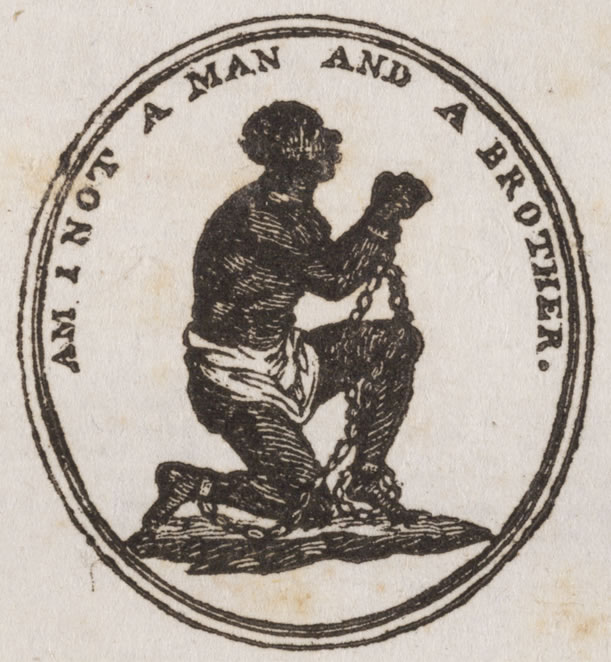 A common objection to the Bible is that it portrays a God who condones slavery. Considering there about 27 million slaves in the world today, it is a major issue that many Christians are involved in try to abolish. The abolitionist movement made famous by William Wilberforce was almost overwhelmingly Christian. So why would Christians fight so hard to abolish slavery if the Bible condones it?
A common objection to the Bible is that it portrays a God who condones slavery. Considering there about 27 million slaves in the world today, it is a major issue that many Christians are involved in try to abolish. The abolitionist movement made famous by William Wilberforce was almost overwhelmingly Christian. So why would Christians fight so hard to abolish slavery if the Bible condones it?
With any issue like this, when we want to look at what the Bible says, context is everything. To paraphrase real estate agents: context, context, context. It can’t be emphasised enough. We can’t just take an issue that we can do things about now and transport it back 2000 years into a completely different culture and context.
The main thing that I see when I read the Bible, particularly the New Testament, is that it is written in a context of suffering. Jesus was a suffering Messiah, and the epistles were generally written to communities which were experiencing some sort of oppression and persecution.
We also need to remember that the Christian movement of the 1st century (when the New Testament was written) was just starting out and sorting out what they believed. Their main emphasis was working out how to live as faithful followers of Christ within that context. They didn’t have the luxury and freedom that Wilberforce (and John Wesley before him) had 1700 years later of being able to speak out and advocate to change laws. And they certainly didn’t have the opportunities we have today of advocating for change.
Having said that, Paul actually does speak against slavery. His letter to Philemon is all about treating Onesimus, a slave, with dignity and respect. This was something that was unheard of in those days. Slaves were chattels, and to treat them as a brother (as Paul asks Philemon to do) was radical to say the least. Added to this is Galatians 3:28 – in Christ there is neither slave nor free. Again this was an outrageous thing to say in that culture – equating slaves with free people.
One of the passages that I discovered only recently that talks very clearly about Paul’s attitude to slavery is 1 Timothy 1:9-10. Included in Paul’s list of lawbreakers in this passage are slave traders. In Revelation 18 we see the judgment of Babylon (probably referring to Rome) in which “the merchants of the earth weep and mourn for her, since no one buys their cargo anymore.” The cargo includes slaves.
Then we can look at the history of the early church. Once they began to gain some freedom after Constantine became Emperor and persecution stopped, that’s when advocating for freedom for slaves started. John Dickson of the Centre for Public Christianity tells a great story about a letter that has been found that was written by St Augustine to a fellow church leader called Alypius in 428.
In the letter, Augustine tells about the rescue of slaves that his church was regularly carrying out. The slave traders would come into port, the Christians would hear about it and would secretly go and break free the slaves, bring them secretly to their homes, clothe and feed them and then try to get them out of the region, away from the slave traders. Don’t you love that? How’s that for non-violent activism!
Going back further, into the Old Testament, we see that the Exodus is the framing story of the people of Israel. It is what the Israelites always remember; it’s the basis for the celebration of the Passover, which Jesus also celebrated and which Jews (and many Christians) still celebrate today.
The Exodus of course was the rescue from slavery of the Israelites from Egypt. If anything speaks to what the Bible says about slavery, surely this defining story of the people of God describes it. God rescued his people from slavery at the hands of the most powerful ruler in the world at the time – the Pharaoh. God saw his people in slavery, heard heir cries and did something about it.
It seems to me that when people make such blanket statements as “the Bible condones slavery,” it’s pretty much (though not always) a give-away that they haven’t done much research, if any. If you asked them why they think the Bible condones slavery, they have probably heard it from someone or read it in a book by someone like Richard Dawkins. I don’t want to demonise Dawkins – it’s too easy for Christians to make him a soft target – but he has said some frankly outrageous things about the Bible which have no basis in fact. And because he is so popular, many people believe what he says.
What do you think? Does the Bible condone slavery?




0 Comments
1 Pingback